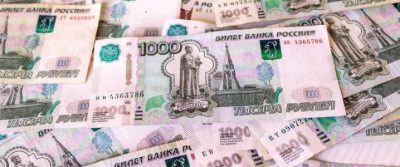EU Gives OK to Pay for Russian Gas in Rubles

All Global Research articles can be read in 51 languages by activating the “Translate Website” drop down menu on the top banner of our home page (Desktop version).
To receive Global Research’s Daily Newsletter (selected articles), click here.
Visit and follow us on Instagram, Twitter and Facebook. Feel free to repost and share widely Global Research articles.
***
The EU has put an end to the lingering ambiguity surrounding how EU members can pay for Russian gas without violating sanctions.
Russia has demanded that countries pay for its gas in rubles, although European governments have struggled to find a way to oblige Russia while not running afoul of sanctions. Further complicating matters—until now—was the EU’s lack of clarification on whether such an arrangement would violate the current sanctions.
On Friday, Germany and Italy both told companies that they could open up rubles accounts in order to purchase Russian gas, in line with President Vladimir Putin’s request.
Russia’s request has companies opening up two accounts at Gazprombank; one in euros or U.S. dollars and another in rubles. Buyers would deposit the payment into one account in U.S. dollars or euros, and then it is automatically converted to rubles without the involvement of the Bank of Russia.
As of last week, 20 companies in the EU had opened accounts at Gazprombank, while another 14 had asked for the necessary paperwork to open up accounts. Germany’s VNG had already opened up an account with Gazprombank.
With the EU now clarifying that such an arrangement would not violate sanctions, additional companies are expected to file paperwork to open up ruble accounts.
But so far, Bulgaria, Finland, and Poland have refused to pay with ruble accounts. Russia has already cut off supplies to Bulgaria and Poland, and Russia said it would cut off gas supplies to Finland on Saturday.
According to Reuters, the EU has so far given out contradictory information, one version in writing on how to buy gas from Russia without violating sanctions, and a contrary version in a closed-door meeting that cautioned EU members not to open ruble accounts with Gazprombank.
*
Note to readers: Please click the share buttons above or below. Follow us on Instagram, Twitter and Facebook. Feel free to repost and share widely Global Research articles.
Featured image is from OilPrice.com

